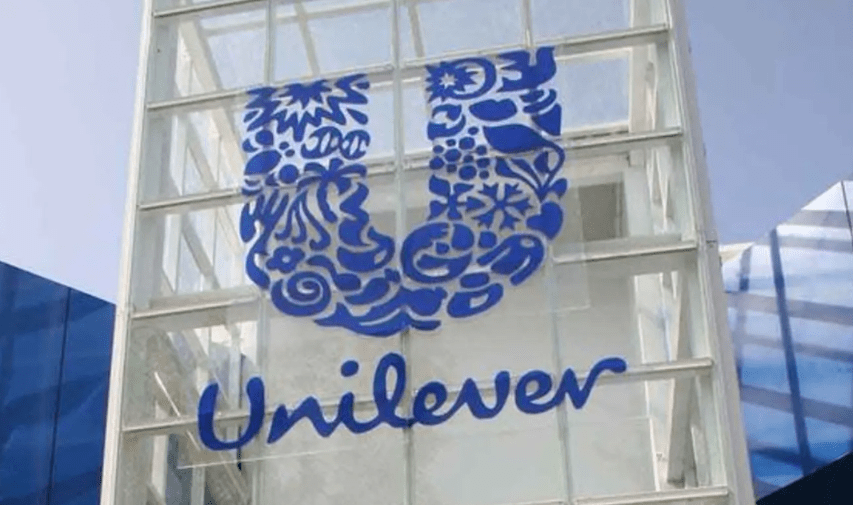Unilever, a British multinational company is going to separate the Ice Cream sector and launch a productivity programme to accelerate its growth action plan (GAP), expected to layoffs around 7500 jobs globally.
Updated on March 19, 2024 16:55 IST

Unilever
Summary:
- An overview on company
- what is Growth Action Plan (GAP)?
- The productivity Programme and layoff around 7500 jobs globally.
- Ice Cream sector as a separate company.
After the separation, the company will become simpler and operate 4 business groups.
- Beauty & Wellbeing
- Personal Care
- Home Care
- Nutrition
It is a UK base multinational company that produces goods includes cleaning agent, foods, beverages, personal care and home care products and sells worldwide (approx 190 countries).

Photo: Consumer goods of the company
It is a dual listed company, headquarters are located in London, the two entities are –
- Unilever PLC (London, UK)
- Unilever NV (Rotterdam, Netherland)
Market Capitalization: $124.94 billion (check Realtime)
Share Price: GBX 3,933.41(check Realtime)
Revenue (Last year): $64.509 billion
Growth Action Plan
To improve the company’s performance, Unilever takes some strategic plan through Growth Action Plan (GAP), which aims are –
- Portfolio Focus
- Productivity Programme
- Separation of Ice Cream company
- Enhance medium-term guidance
Ice Cream demerger

Unilever Ice cream;
The Unilever Board is confident about the future growth of Ice Cream will be delivered better under a different ownership structure. Expected that better turnover than last year which was 7.9 billion euro.
The Productivity Programme and Jobs cut
The company launched a productivity programme to accelerate its Growth Action Plan, for drive faster growth and higher margin, its includes –
- 1. operational changes
- 2. improved productivity and efficiencies
- 3. leaner organization
“The proposed changes are expected to impact around 7,500 predominantly office-based roles globally, with total restructuring costs now anticipated to be around 1.2% of Group turnover for the next three years (up from the around 1% of Group turnover previously communicated). These proposals will be subject to consultation.” Report says.
learn more about other stock news.
The Impact of AI on Jobs
How AI is Reshaping Job Roles?
AI is reshaping job roles by automating routine and repetitive tasks, which were traditionally performed by human employees. For instance, AI-powered tools can now handle data entry, customer service queries, and even some aspects of software development with greater accuracy and efficiency than humans.
This automation has led to a transformation in job roles, with employees needing to shift from performing manual tasks to overseeing and managing AI systems.
Specific job functions at Infosys that have been most affected by AI include:
- Customer Support: AI chatbots and virtual assistants are increasingly handling customer queries, reducing the need for large teams of human customer service representatives.
- Data Analysis: AI algorithms can process and analyze vast amounts of data faster than any human, diminishing the role of data analysts.
- Software Testing: AI-driven automation tools are now capable of performing software testing with precision, reducing the need for manual testing roles.
AI-Driven Layoffs: A Reality Check
The integration of AI at various companies has inevitably led to layoffs, as certain job roles become redundant. In 2023, Infosys announced a series of layoffs directly linked to its AI adoption strategy. According to industry experts, the company aims to streamline operations by replacing roles that can be effectively automated by AI technologies. This move is part of a broader trend within the IT industry, where AI-driven automation is leading to job cuts as companies seek to enhance efficiency and reduce costs.

For instance, a report by Gartner highlighted that up to 30% of IT jobs could be affected by AI-driven automation by 2025. Infosys, being a major player in the IT sector, is no exception. These layoffs, while unfortunate, are a reflection of the broader shift towards AI and the changing nature of work in the digital age.
The Ripple Effect: Impact on the IT Job Market
The layoffs at Infosys have a ripple effect on the broader IT job market. As more companies follow Infosys’ lead in adopting AI, the demand for traditional IT roles may decrease, leading to increased competition for remaining jobs. However, this shift also creates new opportunities in areas such as AI development, machine learning, and AI system management.
The IT job market is likely to see a shift from roles focused on manual tasks to those requiring specialized knowledge in AI and related technologies. This trend underscores the importance of continuous learning and skill development for IT professionals who wish to remain relevant in the industry.
Strategies for Employees to Adapt and Thrive
Upskilling and Reskilling Opportunities
In the face of AI-driven changes, upskilling and reskilling are crucial for employees who want to remain relevant in the workforce. Upskilling refers to learning new skills that enhance an employee’s ability to perform their current job, while reskilling involves training for a completely new role.
For Infosys employees, there are numerous opportunities to acquire new skills, particularly in AI and related fields. Infosys itself offers various training programs designed to help employees transition to AI-related roles. Additionally, employees can pursue certifications in AI, machine learning, and data science through platforms like Coursera, Udacity, and edX.
By embracing continuous learning, employees can not only secure their current positions but also open up new career opportunities in emerging fields.
Exploring New Job Roles
As AI transforms the IT landscape, new job roles are emerging that require a combination of technical expertise and the ability to work alongside AI systems. Some of the new roles that Infosys employees might consider include:
- AI Specialist: Focuses on developing, implementing, and managing AI systems.
- Machine Learning Engineer: Works on designing and building machine learning models.
- AI Ethics Officer: Ensures that AI systems are used ethically and responsibly within the organization.
- Data Scientist: Analyzes complex data sets to inform business decisions, often using AI tools.
Transitioning to these new roles requires a willingness to learn and adapt, but the rewards can be significant, both in terms of job security and career advancement.
Leveraging Soft Skills
While technical skills are essential in the AI era, soft skills remain equally important. Creativity, problem-solving, communication, and emotional intelligence are all areas where humans have a distinct advantage over AI. These skills are critical in roles that require collaboration, strategic thinking, and innovation.
For instance, even as AI takes over routine tasks, human employees will still be needed to interpret AI-generated data, make strategic decisions, and manage relationships with clients and team members. By honing these soft skills, employees can complement AI technologies and enhance their value to the organization.
Networking and Continuous Learning
Networking is another key strategy for adapting to the changing job landscape. By connecting with peers, mentors, and industry experts, employees can stay informed about the latest developments in AI and identify new opportunities for career growth.
Continuous learning is also essential. As AI technologies evolve, the demand for new skills will continue to grow. Employees should seek out opportunities for learning through online courses, workshops, seminars, and industry conferences. Staying ahead of the curve in AI knowledge will ensure that employees remain competitive in the job market.
Case Studies and Success Stories
Success Stories of Adaptation
There are numerous examples of IT professionals who have successfully adapted to the AI-driven changes at Infosys. For instance, some employees who were previously in manual testing roles have transitioned to positions as AI specialists or machine learning engineers after completing relevant training programs. These success stories demonstrate that with the right mindset and a commitment to learning, it is possible to thrive in the AI era.
Lessons Learned from Other Companies
Infosys is not alone in its journey toward AI integration. Companies like IBM, Accenture, and TCS have also embraced AI and implemented workforce strategies to help employees adapt. For example, IBM’s “New Collar” initiative focuses on reskilling employees for roles in AI and cybersecurity, while Accenture has invested in AI training programs to prepare its workforce for the future.
By comparing Infosys’ approach with that of other companies, employees can gain insights into best practices for adapting to AI-driven changes.

